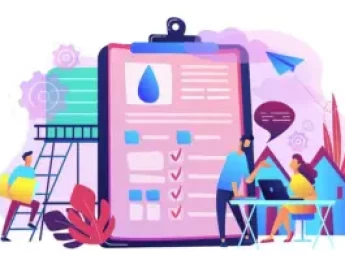The global shift toward low-carbon, sustainable energy systems is one of the most critical responses to the climate crisis. This comprehensive training course explores the dynamic relationship between energy transition and climate change, providing participants with the tools and insights needed to lead and support climate-aligned energy transformation across sectors.
Focusing on renewable energy, innovation, energy efficiency, and policy frameworks, this course equips participants with practical knowledge to design and implement energy transition strategies that contribute to climate mitigation and adaptation. Through case studies, interactive discussions, and strategic planning activities, learners will gain a forward-looking understanding of the evolving global energy landscape.
By the end of this course, participants will be able to:
- Understand how climate change impacts energy systems and why energy transition is essential.
- Analyse renewable energy technologies and their role in decarbonising economies.
- Explore key drivers, barriers, and enablers of the energy transition across regions.
- Evaluate national and international climate policies and their influence on energy strategy.
- Examine how innovation, digitalisation, and new business models are transforming the sector.
- Develop organisational or policy-level action plans for accelerating energy transition
- Strengthen resilience in energy systems and infrastructure to adapt to climate impacts.
This course is ideal for:
- Energy professionals, project managers, and engineers.
- Sustainability and environmental managers.
- Government officials and policy advisors.
- Corporate climate and ESG strategists.
- Academics and researchers in energy and climate studies.
- Consultants and advisors in green energy markets.
- NGO representatives and climate advocates.
- Students and early-career professionals interested in sustainability and energy policy.
The course is delivered through expert-led presentations, collaborative workshops, real-world case studies, group discussions, and interactive planning exercises. Participants are encouraged to apply learning to their own professional contexts, resulting in actionable and strategic outcomes.
Day 5 of each course is reserved for a Q&A session, which may occur off-site. For 10-day courses, this also applies to day 10
Section 1: Climate Change and the Urgency of Energy Transition
- Scientific overview: the climate crisis and global warming trends.
- Greenhouse gas emissions and their link to energy systems.
- The global energy mix: fossil fuels, renewables, and transition pressures.
- Climate risks to energy infrastructure: physical, operational, and financial.
- Global climate leadership: success stories and emerging models.
- The role of energy systems in both mitigation and adaptation strategies
Section 2: Renewable Energy Technologies and System Integration
- Overview of key renewable energy sources:
- Solar PV and CSP
- Onshore and offshore wind
- Hydropower and pumped storage
- Sustainable bioenergy and biomass
- Geothermal systems
- Integration challenges and grid reliability.
- Energy storage solutions: batteries, thermal storage, hydrogen.
- Sector coupling: electrification of transport, buildings, and industry.
- Best practices from global renewable energy projects.
- Group activity: comparing renewable options for different regions
Section 3: Policies, Incentives, and Global Climate Frameworks
- International climate agreements: from Kyoto to the Paris Agreement.
- Nationally Determined Contributions (NDCs) and policy obligations.
- National energy transition strategies and regional roadmaps.
- Tools for enabling clean energy finance:
- Carbon pricing mechanisms
- Renewable energy subsidies and tax credits
- Green bonds and public-private partnerships
- Regulatory coherence and institutional coordination
- Case studies: regulatory frameworks that accelerated clean energy transitions
Section 4: Innovation, Efficiency, and Emerging Technologies
- Role of energy efficiency in reducing demand and emissions
- Digital transformation in the energy sector:
- Smart grids
- AI and predictive maintenance
- IoT in energy monitoring
- Next-generation technologies:
- Green hydrogen
- Carbon capture and storage (CCS)
- Small modular nuclear reactors (SMRs)
- Decentralised energy and prosumer models
- Business model innovation and changing market structures
- Analysis: how innovation ecosystems accelerate transition
Section 5: Strategic Planning, Risk Management, and Organisational Action
- Roadmapping the energy transition: timelines, milestones, KPIs
- Organisational change and stakeholder engagement
- Climate and energy risk assessment for long-term planning
- Resilience strategies in vulnerable energy systems
- Scenario planning and futures thinking in energy strategy
- Workshop: build a customised energy transition strategy for your organisation
- Peer feedback and refinement of action plans
- Summary discussion: aligning personal and institutional roles with global goals
Upon successful completion of this training course, delegates will be awarded a Holistique Training Certificate of Completion. For those who attend and complete the online training course, a Holistique Training e-Certificate will be provided.
Holistique Training Certificates are accredited by the British Accreditation Council (BAC) and The CPD Certification Service (CPD), and are certified under ISO 9001, ISO 21001, and ISO 29993 standards.
CPD credits for this course are granted by our Certificates and will be reflected on the Holistique Training Certificate of Completion. In accordance with the standards of The CPD Certification Service, one CPD credit is awarded per hour of course attendance. A maximum of 50 CPD credits can be claimed for any single course we currently offer.
- Course Code IND01 - 153
- Course Format Classroom, Online,
- Duration 5 days











